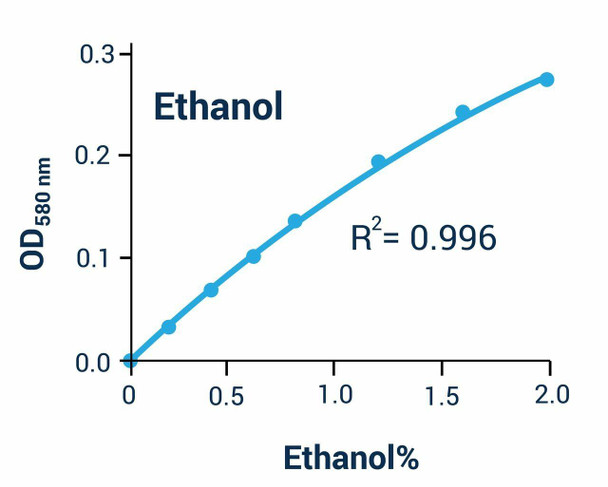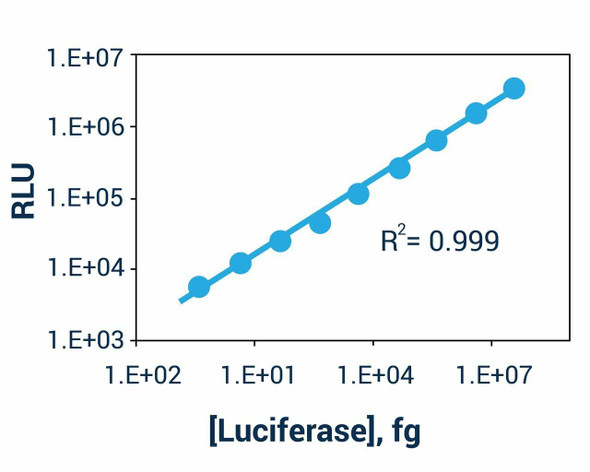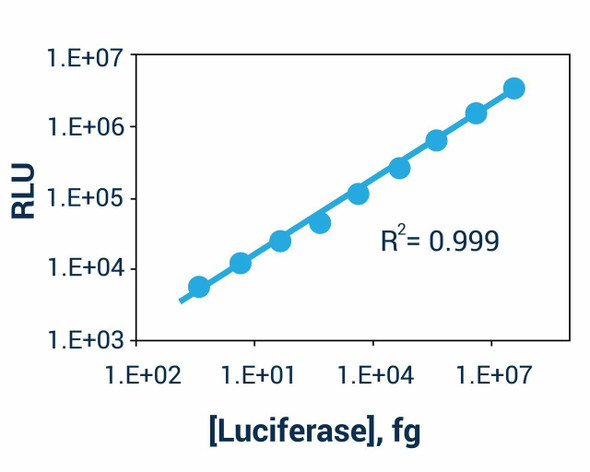Ethanol Test Kit - Information
This colorimetric ethanol test kit is based on an improved dichromate method, in which dichromate is reduced by ethanol to a bluish chromic (Cr
3+) product. The intensity of color, measured at 580 nm, is a direct measure of the alcohol concentration in the sample. The optimized formulation substantially reduces interference by substances in the raw samples and exhibits high sensitivity.
Applications
For quantitative determination of ethanol and alcohol metabolism.
Ethanol Test Kit - Key Features
- Sensitive and accurate. Detection range 0.04 - 4% alcohol in 96-well plate assay.
- Convenient and high-throughput. The procedure involves adding a single working reagent, incubation for 8 min, adding a Stop Reagent, and reading the optical density. Can be readily automated as a high-throughput 96-well plate assay for thousands of samples per day.
- Versatility. Assays can be executed in 96-well plate or cuvet.
Ethanol Test Kit - Data Sheet | |
| Kit Includes | Reagent A: 50 mL Reagent B: 50 mL 10% TCA: 50 mL Standard: 2 mL 10% (v/v) ethanol |
| Kit Requires | Pipeting (multi-channel) devices. |
| Method of Detection | OD580nm (Chemical) |
| Detection Limit | 0.04% |
| Samples | Alcoholic beverages etc |
| Species | All |
| Protocol Length | 10 min |
| Size | 500 tests |
| Storage | Store reagents at room temperature and the ethanol standard at 4°C. |
| Shelf Life | 12 months |
More Details
Alcoholic drinksare among the daily consumed beverages. Studies have shown heavy alcohol consumption may lead to various forms of liver diseases and to increased mortality rates. Quantitative determination of alcohol (ethanol, C
2H
5OH) finds applications in basic research, drug discovery, clinic studies and winery. Simple, direct and automation-ready procedures for measuring ethanol concentration are very desirable.













